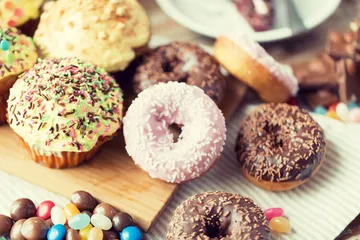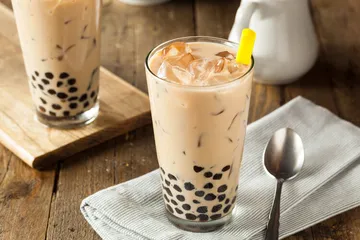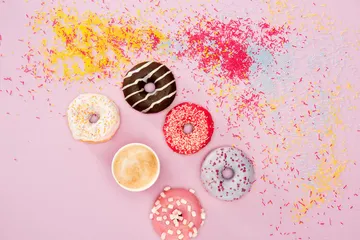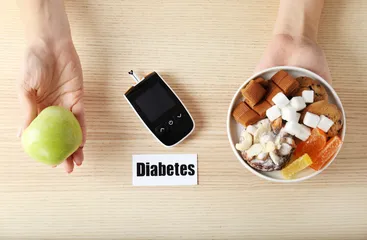Why milk tea can save a depressed mood? Experts spoke this time
"Spring is here. It's time for me to lose weight." Seeing that spring is approaching day by day, and the meat that has been stored all winter is about to be exposed, little fairies who love beauty have joined the army of weight loss and begun to quit sugar and high energy. Xiaobian's roommate is also one of them. However, it was not so easy to lose weight. Not eating sweets for a long time made Xiaobian's roommate miserable, and finally succumbed to sweets and ran to the dessert shop. After taking a bite of the cake, the roommate's mood instantly lightened, and his happiness index soared.

Why do you feel happy when you eat sweets?
Xiaobian specially invited Teacher Miao Yutian, the research and development specialist of COFCO Nutrition and Health Research Institute, to answer this question for us.
Q1:"Teacher Miao, why does eating sweets bring a great sense of happiness?"
Q2:"When the sugar in sweets is ingested by us, it will turn into blood sugar in the body. Rising blood sugar will stimulate the reward mechanism in the brain to secrete dopamine, which can bring us a feeling of pleasure."
Q1:"What is dopamine? Why does it bring joy to people?"
Q2:"Dopamine is a precursor of NA and a key neurotransmitter in the hypothalamus and pituitary glands. It is mainly responsible for the lust of the brain, transmitting exciting and happy information. It is also the main reason why people are addicted to some things. So, when dopamine increases, it makes people excited and enhances happiness."
If you don't eat sweets, you'll say goodbye to sugar?
Xiaobian's roommate died on the road to weight loss, but there are still many little fairies who overcome obstacles on the road to burning calories in order to have a slim figure.
There are thousands of delicious foods, the first sugar-free one, irregular diet, and tears from relatives! Although everyone can resist the temptation of cake ice cream, how can they resist the fatal temptation of milk tea? Sugar-free milk tea must be the last strength of many little fairies!

But, is the sugar-free milk tea you imagine really sugar-free?
Last year, a reporter bought a total of 40 cups of 20 milk tea and sent them to the Guangdong Province Food Inspection Institute for testing for caffeine, total sugar, fat and trans-fat components. Among this batch of samples, 14 products claimed to be "sugar-free," but the results were shocking! Among the 14 sugar-free milk teas, sugar was detected. The total sugar content of each cup of milk teas ranged from 4.45 to 24.5 g, with the average content reaching 14.8 g. Among them, the well-known "Coco" has the highest sugar content.
After a long time, the Hong Kong Consumer Council and the Center for Food Safety tested the sugar content of 127 non-prepackaged tea drinks on the market and the energy value of some samples, and the results were still alarming. Among the samples, the sugar content of 5 items exceeded the daily sugar intake limit, and one cup immediately exceeded the daily free sugar intake limit. Therefore, even if it is sugar-free, it does not mean that it is really goodbye to sugar!

In fact, in a broad sense, except pure vegetable oil, almost all foods contain sugar. According to the GB28050 -2011 National Food Safety Standard "General Rules for Nutrition Labelling of Prepackaged Foods","sugar-free or sugar-free" means that the sugar content per 100 grams or 100 ml of solid or liquid food is not higher than 0.5 grams.
At the same time, the so-called sugar-free generally refers to sweet foods that do not contain sucrose (sugarcane sugar and beet sugar), glucose, maltose, fructose, etc., but may contain sugar alcohols (including xylitol, sorbitol, maltitol, mannitol) and other alternatives. Even vegetables, such as lettuce leaves, are definitely not sugar-free foods, but have relatively low sugar content. The sugar content of 100g of lettuce is about 1.4 g.
Are sweets really the main culprit of getting fat?
The

saw that the little demon "sugar" is widely present in various foods, and Xiaobian seemed to hear a wail from the weight loss army. "This is forcing us to only drink water three meals a day!" Does it really make you gain weight when you eat sweets or other sugary foods?
Answer: NO!
The World Health Organization has said that excessive intake of sweets and other sugary foods can lead to chronic diseases such as obesity, high blood pressure, heart disease and diabetes. However, adults who consume 2000 kilocalories of energy from their diet every day can reduce the risk of these diseases if they consume less than 500 grams of free sugar per day. Therefore, as long as we pay attention to a balanced diet, have less oil, salt, and sugar, control total calorie intake, exercise more, and maintain healthy living habits, we will not gain weight if we eat some sweets occasionally.

站图片位置"Sugar" is one of the main sources of heat energy in the human body. Adults need about 10g-12g of sugar per kilogram of body weight per day. If we consume too little sugar for a long time in order to maintain our body shape, our body will consume the stored glycogen in the body, then consume fat, and finally consume protein, ultimately leading to low blood sugar. People with severe low blood sugar can experience symptoms such as inconcentration, restlessness, irritability and even coma, which affects our health.
So,"sweets" are not a nightmare for dieters. As long as we formulate a healthy weight loss plan, we can still eat some. In addition, although eating sweets will make us feel happy, we still need to keep our mouths shut and keep our bodies healthy.